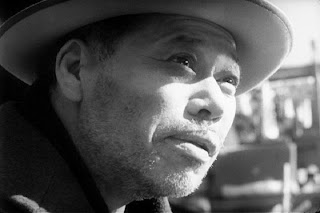
Le Corbeau (1943)
The Gist:
Le Corbeau, or The Raven, is a fascinating film made in the midst of nazi-occupied France. It is apparently based on real events, where a "poison pen" sends hundreds of anonymous notes informing dark secrets on his fellow man, causing an uproar. In the film, the protagonist is a self-righteous doctor accused of being an abortionist, and the letters are purposed towards removing him from the town. Eventually hysteria builds to such heights that an innocent woman, who is thought to be the poison pen, is chased through the streets in a mob scene recalling Frankenstein. Likewise, the police try to ensnare the doctor in a set-up abortion as to finally be rid of him and consequently rid of the letters as well. Within the running time of the film, the morality of man is called into question, the idea that there is a clear right and wrong, good and evil. The film itself stands up well, but it's also a curious study in touching a sensitive nerve at a sensitive time. Essentially this film was denounced and banned by nearly every place of authority in France both during the occupation and following France's newly won freedom afterward. The Nazis didn't like that it spoke ill of informing, the French underground resistance movement felt like it worked against unifying the French people, the church cried "Blasphemous!" as usual, and so on. What's most curious is how the government after the occupation continued the ban on the film, almost embarrassed at the film's window into their country's darkest moment.







.jpg)



_06.jpg)


